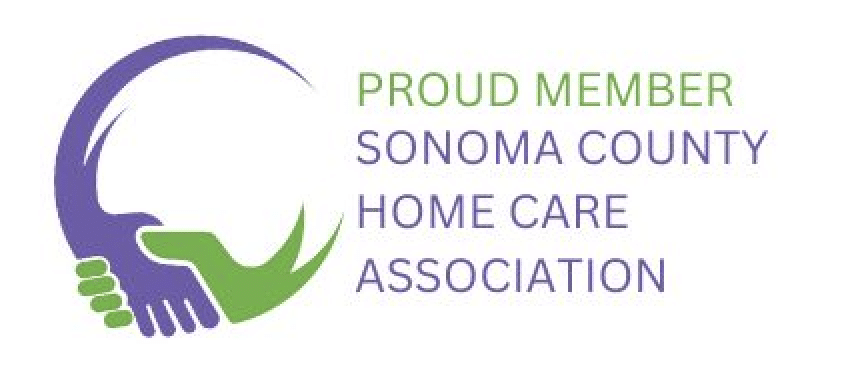10 Ways To Control High Blood Pressure Without Medication
Many people have high blood pressure. It can lead to heart problems and other health issues. Lowering your blood pressure without medication is possible with the right steps.
One important fact is that losing just a little weight can make a big difference in your blood pressure. Each kilogram you lose can drop your blood pressure by about 1 mm Hg.
Our blog will show you ten ways to control high blood pressure through lifestyle changes. You’ll learn how eating healthy, exercising, and sleeping well can help.
Keep reading for tips on living better!
Key Takeaways
- Losing weight helps lower blood pressure. Every 2.2 pounds lost can drop it by about 1 mm Hg.
- Eating less salt and more fruits, vegetables, and whole grains can reduce blood pressure by up to 11 mm Hg.
- Regular exercise like walking or cycling for about 30 minutes daily can decrease blood pressure by 5 to 8 mm Hg.
- Limiting alcohol to one drink a day for women and two for men can lower blood pressure by about 4 mm Hg.
- Getting enough sleep, quitting smoking, and managing stress are important too.
Lifestyle Changes for Controlling High Blood Pressure
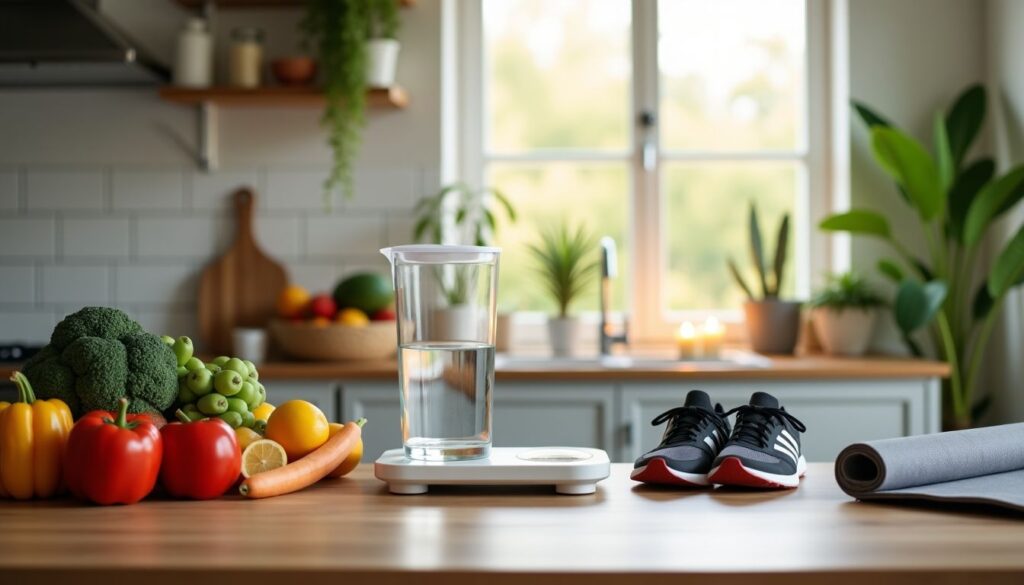
Making lifestyle changes can effectively help in managing high blood pressure. These changes include losing extra weight, engaging in regular exercise, consuming a healthy diet with less salt and sodium, limiting alcohol intake, quitting smoking, ensuring good sleep quality, managing stress levels, monitoring blood pressure at home consistently and going for regular checkups.
Seeking support from family members or caregivers can be instrumental in making these necessary lifestyle adjustments to control high blood pressure without medication.
Lose Extra Weight and Watch Your Waistline
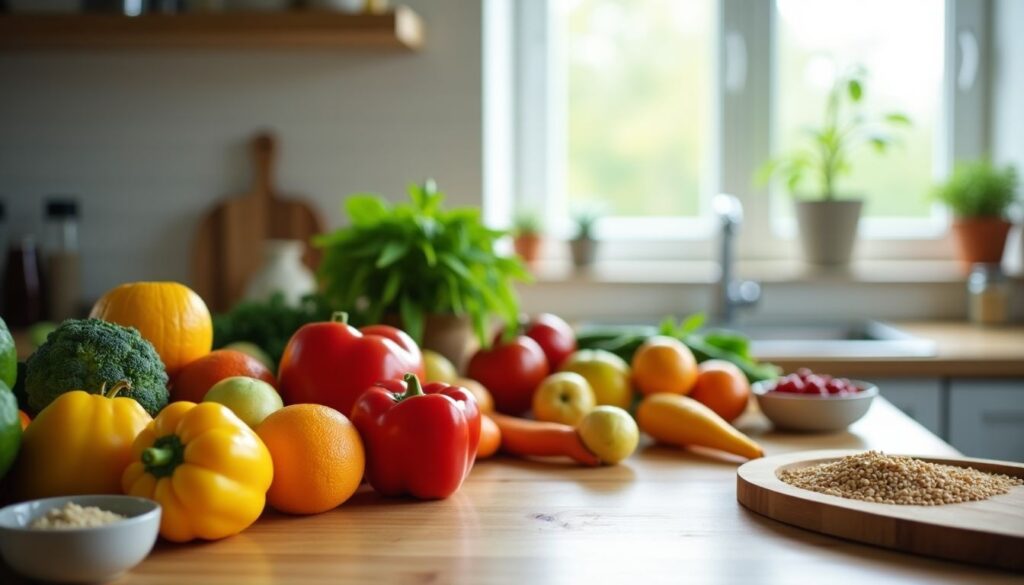
Losing weight helps lower high blood pressure. For every 2.2 pounds your parents lose, their blood pressure can drop by about 1 mm Hg. It’s good for their heart health. Check their waistline too.
Men should keep it under 40 inches and women under 35 inches to stay healthy.
Encourage your parents to eat more fruits, vegetables, and whole grains. These foods are part of a low carb diet that can help them shed extra pounds. Keeping track of what they eat in a food diary is also useful.
A healthy outside starts from the inside. – Robert Urich
Watch out for salt intake in their diet because it raises blood pressure levels. Choosing low sodium options or cooking meals at home lets you control how much salt goes into the food they eat.
Exercise Regularly

Encouraging increased physical activity in your elderly parents can be a challenge. However, are you aware that consistent aerobic exercise can assist in reducing their blood pressure? Strive for roughly 30 minutes of moderate activity daily.
This small act can decrease their levels by an estimated 5 to 8 mm Hg. Activities as straightforward as walking, cycling, or dancing are classified as moderate exercises.
Incorporating strength training into their biweekly routine is also beneficial. It maintains muscle vitality and promotes cardiovascular health. Incorporating these exercises doesn’t necessitate intense gym workouts.
A brisk walk or home-based workouts are sufficient.
Maintaining a healthy diet ranks right after physical activity.
Eat a Healthy Diet

Eating well helps lower high blood pressure. Choose whole grains, fruits, vegetables, and low-fat dairy. These foods can reduce blood pressure by up to 11 mm Hg. The DASH diet and Mediterranean diet are good choices.
They have lots of these healthy foods.
Your parents should eat more potassium too. Aim for 3,500 to 5,000 mg every day. It can cut their blood pressure by 4 to 5 mm Hg. Making these changes in their eating habits will help them live a healthier life.
Reduce Salt and Sodium in Your Diet

To lower your blood pressure, limit sodium to 2,300 mg or ideally 1,500 mg. Watch food labels for low-sodium options and choose fewer processed foods. Avoid adding table salt; use herbs/spices instead.
Consuming less sodium can reduce your blood pressure by about 5 to 6 mm Hg.
Limit Alcohol

Reducing alcohol consumption can help control high blood pressure. For women, aim for one drink a day; for men, it’s two drinks. This small adjustment can decrease your blood pressure by about 4 mm Hg.
Remember that a standard drink equals 12 ounces of beer, 5 ounces of wine, or 1.5 ounces of hard liquor.
Consuming too much alcohol can elevate your blood pressure and diminish the impact of your blood pressure medications. Be aware of your intake. Modifying your alcohol consumption positively contributes to your path to improved health and well-being as you take care of elderly parents at home.
Quit Smoking

Smoking increases blood pressure, elevating the risk of heart disease and other health issues. When you stop smoking, it helps decrease your blood pressure and reduces the risk of heart conditions.
This change is crucial for your overall wellbeing.
Quitting smoking brings significant health benefits. It’s not just about reducing high blood pressure, but also about minimizing the risk of heart disease. By integrating this change into your lifestyle, you take a significant step toward better health for yourself as well as those around you.
Your commitment to quitting smoking significantly contributes to improving your overall cardiovascular risk factors and enhancing your quality of life.
Take this essential step towards a healthier lifestyle by starting the journey to quit smoking today.
Get a Good Night’s Sleep
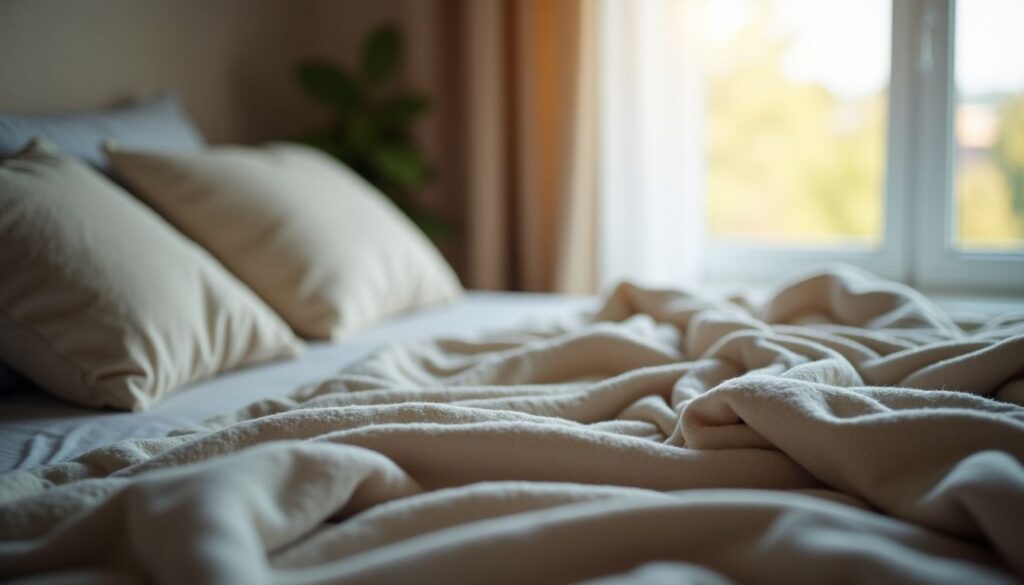
Getting enough sleep is vital for maintaining a healthy blood pressure. Consistently sleeping less than seven hours can contribute to hypertension, posing risks for heart disease and stroke.
You need 7 to 9 hours of sleep each night to keep your body functioning well. If you struggle with sleep, sticking to a regular sleep schedule could help. Avoiding heavy meals, caffeine, nicotine, and alcohol close to bedtime may also improve your chances of getting better rest at night.
Factors like sleep apnea and insomnia might be disrupting your sleep pattern too — it’s crucial not to overlook these issues when working to control your blood pressure without medication.
Ease Stress

Transitioning from prioritizing sleep to managing stress is important for seniors. Long-term stress has the potential to impact high blood pressure. Identifying and managing stress triggers can be helpful.
Prioritize your tasks and avoid taking on too much. Dedicate daily time to relax and engage in enjoyable activities like hobbies or spending time with loved ones. Seeking support is recommended if managing stress becomes challenging.
Track Your Blood Pressure at Home and Get Regular Checkups

You can take control of your health by monitoring your blood pressure at home and getting regular checkups with healthcare professionals. Here’s how:
- Home blood pressure monitors are widely available without a prescription, making it convenient to track your readings regularly.
- Consult a healthcare professional about home monitoring before starting to ensure you are using the right device and techniques.
- Regular checkups with a healthcare professional are essential for maintaining good health and managing any potential issues effectively.
- Keeping track of your blood pressure at home enables you to provide valuable information to your healthcare team during checkup appointments.
- By actively monitoring your blood pressure, you empower yourself in understanding how your lifestyle choices impact your health, leading to better decisions for long-term well-being.
Managing Cholesterol and Blood Sugar

Managing cholesterol and blood sugar is crucial. High blood sugar and elevated non-HDL cholesterol levels increase the risk of heart disease. Adopt healthy habits that also lower blood pressure: nutritious diet, regular exercise, maintaining a healthy weight, and avoiding smoking.
Follow healthcare professional advice on managing cholesterol and blood sugar.
Stay focused on maintaining a balanced lifestyle. Aim for a diet low in saturated fat and rich in fruits and vegetables. Exercise regularly with high-intensity interval training or aerobic activity to keep your body active.
By tracking your progress carefully, you can manage your health effectively.
Remember to consult with healthcare professionals regularly regarding any changes in medication or treatments related to managing cholesterol and blood sugar levels.
Never ignore taking care of yourself when it comes to these vital aspects of health – embrace a healthier lifestyle today!
Seek Support for Lifestyle Changes
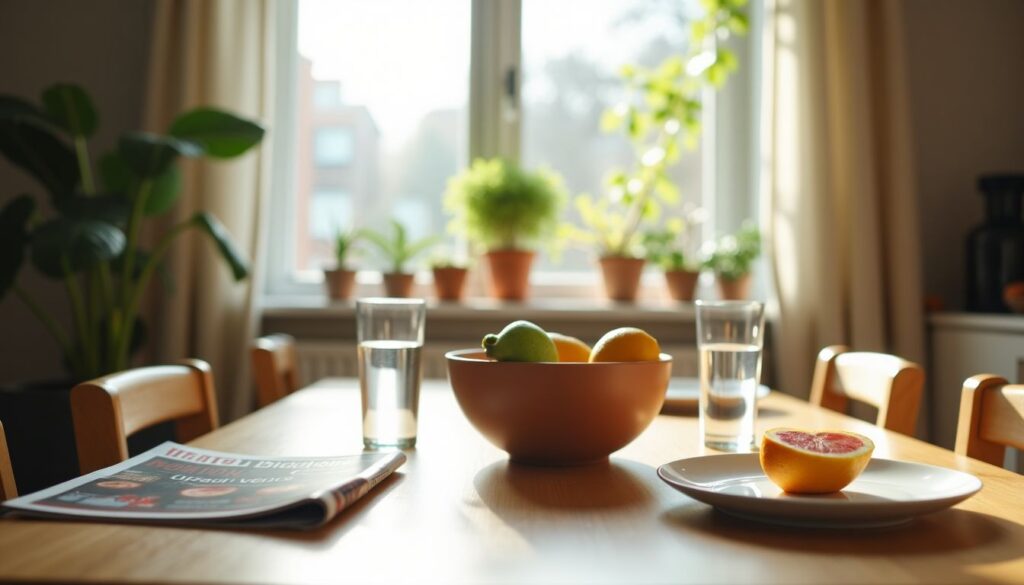
You might find it helpful and easier to stick with your new lifestyle changes if you have support from family and friends. They can motivate and help you take care of yourself, including going to healthcare appointments.
You could also consider joining a support group to get more encouragement and practical tips for managing high blood pressure. This kind of support can make the journey toward better health less overwhelming and more achievable.
Conclusion
In conclusion, you’ve learned about 10 practical ways to manage high blood pressure without medication. These strategies include losing weight, exercising, adopting a healthy diet, reducing salt and alcohol intake, quitting smoking, getting adequate sleep, managing stress, monitoring blood pressure at home, and seeking support for lifestyle changes.
By integrating these straightforward yet powerful methods into your routine, you can significantly lower your blood pressure and decrease the risk of heart-related problems. Consider how including these suggestions could result in positive changes in your health.
Take action on what you’ve learned by making small adjustments each day towards a healthier lifestyle. Keep in mind that even small steps can lead to significant improvements in managing high blood pressure without relying solely on medication.





